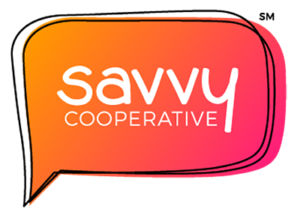An interview with Savvy Cooperative co-founder Jen Horonjeff
Patients are as much part of a healthcare system as doctors, nurses, scientists, technicians and the myriad other experts whose work we rely on to keep us well and treat us when we’re sick. In fact, in their own way, patients are often experts themselves, particularly those living with long-term conditions.
Savvy Cooperative provides a platform that taps into the ocean of patient experience to provide insight for healthcare services, researchers, drug companies and anyone who wants to really understand the ‘end user’. Its aim is to encourage a more patient centric approach to the design and delivery of healthcare.
Savvy Cooperative calls itself the ‘Match.com of patient insights’, and that’s a pretty concise way to sum up what it does. It matches patients with organisations looking to find out what patients really need or what they think about a product or service.
It was born out of the personal experiences of its two founders, Jen Horonjeff, PhD, and Ronnie Sharpe, who live with arthritis and cystic fibrosis respectively.
Jen was diagnosed as a child and knew early on that she wanted to work in the healthcare sector. She went on to study biomechanics and complete a PhD in environmental medicine. She worked both in industry and academia and found an alarming commonality. Whether advising on human factors and product design or developing patient-centred outcomes in clinical trials and treatment guidelines, there was a paucity of patient involvement.
“When I got on the professional side, I found there were smart, dedicated people working to improve the patient experience,” says Jen. “However, they were doing so without ever talking to a patient. And that struck me as being a problem – how would they even know what needs improving if they aren’t working with patients to do so? Then, because I’m very open about being a patient, people would ask me to be that patient voice. At first, I was happy to, but when they just kept coming back to me it seemed like there was perhaps an access problem because I couldn’t possibly be the only person that could speak to this.”
It was clear to Jen that more – and more diverse – voices were vital. She began connecting researchers with patient communities representing groups with certain conditions and then realised that what was needed was a platform to connect the two sides.
“That’s really where Savvy Cooperative was born – I wanted to make it easier for the two sides to connect, and using technology could help do that,” says Jen. “And this is something that is not unique to any one disease or health condition. We wanted to make sure we can help create best practices regardless of the condition somebody might be having. Because while I might be able to speak as a patient with arthritis, which is one of my diagnoses, I could also speak to my child with, say, asthma or a spouse with epilepsy, or a parent with Parkinson’s. So, we really just wanted to make it frictionless for a person to be able to share their perspectives and experiences.”
A health gig economy
Savvy Cooperative incorporated in 2016 and launched its platform last year, so right now the focus is on engaging patient communities and building relationships with client organisations. While many have focused their attentions on pharma, Savvy also works with many digital health companies.
“We feel that there’s a special opportunity here in digital health, because these are smart, brilliant people working in technology, who may have never been in healthcare before. And so, we really want to make sure that they’re understanding that this is a different sector.”
The Savvy platform advertises what it calls ‘gigs’ – opportunities to take part in surveys, interviews, user testing, focus groups and so forth – placed by companies for research and innovation projects. Patients get rewarded in cash or with gift cards, discounts and coupons.
More on Patient Centricity: Interview with former NHS Digital boss Andy Williams
“One of the things that we advocate for is that patients are fairly compensated for their time and the expertise that they’re sharing. We want them to be paid or valued in some fashion. It varies between organisations – we work with non-profits whose budgets are obviously going to be very different to a big pharma company. But we just want people to really understand that the patient’s personal experiences should be valued.”
It is clear that a platform connecting real patients with healthcare organisations in both private and public sectors could also offer a neat way to share health data as well as personal insight.
Making a difference
The cooperative structure means it is effectively owned by its members and this an important part of the Savvy philosophy.
As the service is all about elevating the voice of patients and making sure they are fairly valued in the industry, Savvy Cooperative chose a business model that reflected this.
People who sign up to be a co-op member each have an equal vote in Savvy’s decisions and are eligible to share in Savvy’s profits based on how much they contribute.
While the individual is directly rewarded, there are also wider social benefits, says Jen.
“If you think about somebody who may have been diagnosed with something like cancer, their whole world can be rocked. They may no longer be able to work, or they might not be able to participate in the activities they did before. We hope to give them one way to know that even though they may be going through those experiences, they can make a meaningful impact to society.
“What’s also important is that we try to close the feedback loop. Often, in the past, when patients contribute by giving their input or participating in research such as clinical trials, they never hear the results, so they never know how that made an impact. We make sure that the clients that we work with will then give feedback after the engagement and say ‘thank you so much for your participation in this focus group – because of you we learned X, Y and Z which helped to inform us in creating this new programme, or this new tool’ or whatever it might be, and that that goes back to the participants and to the community so that they can see how being part of it made a difference køb viagra.”
Physician, heal thyself
Savvy Cooperative has, then, turned what it is to be a patient into a tangible benefit for any organisation working to provide healthcare services and products.
“First person patient experience has always been there, it’s just that it wasn’t being valued as an asset, and it truly is,” says Jen. “The more we get into user-centred design, people are seeing this, so we want to make it so easy to work with patients and get patient insights, there’s no excuse not to.
“In any other consumer industry, they do product testing, market testing and a lot of research beforehand. Coca-Cola doesn’t bring a new commercial product to market without doing market research and user testing. So now we’re just making it easier to do that in healthcare.”
It’s almost impossible to argue against the logic of placing the patient at the centre of healthcare provision, both in terms of innovation and delivery. Patient Centricity is all about empowering the individual to have greater agency in their personal health and the care they receive. A platform that creates conversations between providers and users can only make that more achievable.


